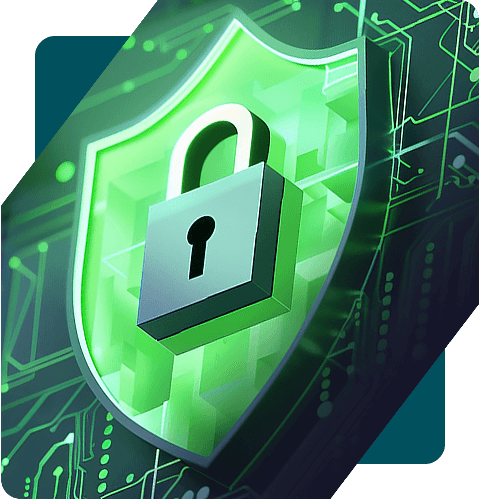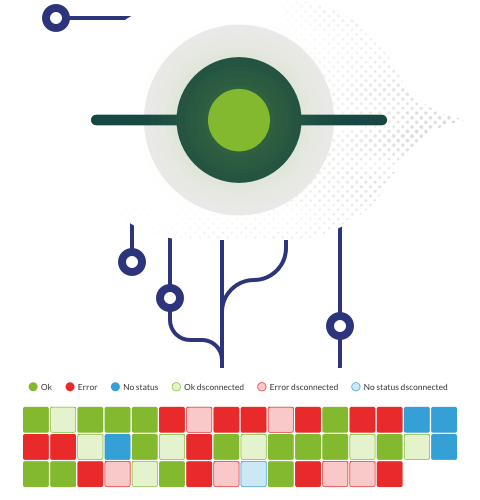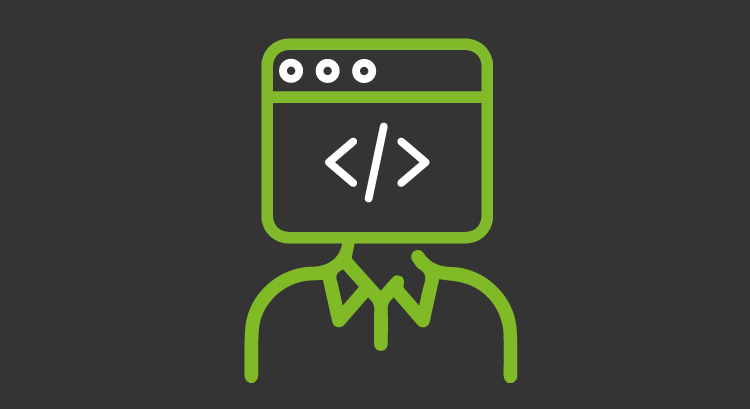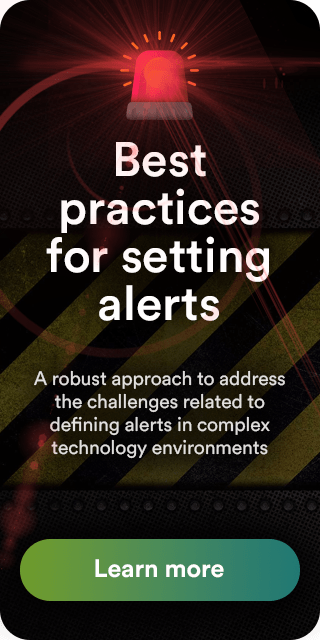What is a “developer”? What do they mean for a company?
“Developer”, “DE-VE-LO-PEEEERRR”… It sounds pretty good. It’s easy to make your parents buy it when you explain them they are going to pay for your degree and they will be able to boast about their children being geniuses who joined the wave of computer science and technicalities… But what is really a “developer”? They are there, surely in your company, doing their developer stuff and talking to each other in their developer code, but few people really know what they really are.
People have studied their habitats, what they eat and even how they reproduce, whether by binary fission of their DNA or by vegetative multiplication, like sweet potatoes, but to delve further into what a developer really is, we have decided to ask them, specifically those of our company, Pandora FMS, for a definition. They will clear out all of our doubts.
Luis Calvo, the fourth member of Destiny’s Child
-Could you define what a developer is and what it means to be a developer for you?
A developer is the person who usually builds a software based on an idea.
For me it means creating and contributing with something that will later be used by other people or, someday, be seen by other developers. It is a bit like leaving some mark with your “creation”. Michelangelo made the frescoes for the Sistine Chapel, Beyoncé “Crazy In Love”. I’m happy with this.
-How does a developer like you end up spending hours worth of code into a monitoring software like ours?
Part chance, part curiosity, a job offer from a company in Madrid that I didn’t know at all and the fact that, when searching on Google, this company appears referred to in a news story as: “Ártica, the David that challenges the software giants”… This obviously sounds attractive and interesting.
-What’s the fun of it?
I love it when things get a little difficult and I have to investigate how to solve it, look into it and use some new trick, that works well, of course. I am one of those who laugh it out and have a good time disconnecting a bomb in the last ten seconds. If you ever see yourself in that situation, it’s always the yellow wire. Cut that one for sure. Or was it the red one?
José González, a misunderstood and modern being
-Could you define what a developer is and what it means to be a developer for you?
A developer is (or should be) a type of modern artist, a misunderstood being, who writes buzzwords and unintelligible symbols on a machine. For me it’s a lifestyle, like a hallmark. When someone types in code and likes it, it shows, like a tattoo. From afar, in small groups, we are often mistaken for a gang of bikers.
-How does a developer like you end up spending hours worth of code into a monitoring software like ours?
It was by chance, but when I saw the opportunity to get in here I didn’t even think twice. Working on a project like this, which covers so many areas and is so big, it’s intimidating at first, but it pushes me to face new challenges and reach new goals.
-What’s the fun of it?
I don’t know, there’s something to developing that is very addictive. Different languages, different paradigms, different types of problems to be solved, the fact of wanting to reach perfection or at least touch it… Every day is a new challenge and I think that’s what I really like.
Borja Sánchez. (For the record, it is ME who allowed him to modify the question.)
-Could you define what a developer is and what it means to be a developer for you?
A developer is in charge of transforming an idea, following a procedure, into a usable tool. Offtopic, the ‘developer’ thing is not as if you said that in a construction site all people working there are bricklayers… I do not consider myself a ‘developer’, because my work is not limited to typing in code to reach a solution already planned by others. In my case, a problem arises and I am in charge of analyzing, designing and developing that solution. Those are really three different jobs: engineering, architecture, and development (analysis, design, coding).
To be clear, the software life cycle is a cycle divided into these stages: definition, analysis, design, development, testing, validation and maintenance.
Only the “development” part is the developer’s job (whether junior or senior). In my case, I focus on the analysis, design and development stages. QA would be testing and validation. Support, project/commercial maintenance, definition.
-How does a developer like you end up spending hours worth of code into a monitoring software like ours?
Allow me to modify the question based on what I answered before… How does a systems technician end up doing the tasks of a software architect? By getting in the company without a degree and showing my abilities based on my work. Mario Pulido (another nice guy from our company) mentored my foray into the world of Pandora FMS as a technician, but after things like pandora_ux, route parser, the distributed transactional system… it was Sancho (CEO of the company) who gave me carte blanche to define new opportunities within the product.
-What’s the fun of it?
By taking care of three stages, work tasks become something more artistic, let’s say. It is not only following step by step a model of a pre-built solution, but rather I can start laying out the basis and prepare tools that will help us in the future to make more efficient developments, which are what make Pandora FMS be really flexible.
Marcos Alconada, life giver
-Could you define what a developer is and what it means to be a developer for you?
For me, a developer is a person capable of giving life to all the ideas that you can think of, technologically speaking, of course. And the meaning, for me, is to be able to make easier for people to do their work or their work environment, be it by making simple web pages, promoting their businesses (SMEs) or giving to clients, in this case those of Pandora FMS, the option to monitor their systems more easily.
-How does a developer like you end up spending hours worth of code into a monitoring software like ours?
I ended up working on a monitoring software because I consider it to be a very complete type of software. I mean, it interacts with different types of language. Until I came to Pandora FMS, I had not seen any PERL language and after all this time I already feel familiar with it. I believe that working in companies like Pandora FMS make you achieve a progressive and complete professional evolution.
-What’s the fun of it?
The best thing about my job is to develop new and cool things that I can be proud of and that make me say: “Look, I did that.” As well as looking back and seeing what I was before and what I am now. Improving both personally and professionally is one of the best parts of this job. And the free fruit that we get at the office. It is easier to work if you know that there is always a tangerine or plum in the fruit bowl.
Alejandro Campos, professional also on weekends
-Could you define what a developer is and what it means to be a developer for you?
Someone who has a demanding profession that never allows them to stop learning, even outside of working hours.
-How does a developer like you end up spending hours worth of code into a monitoring software like ours?
In my case, I finished my degree in Computer Engineering and I was lucky to get in and keep on learning.
-What’s the fun of it?
Working as a team sometimes involves finding yourself in difficult situations when it comes to modifying or complementing a code that is not yours, tracing the source of a problem and it can even add more stress to the work having all the situations that could take place covered and controlled in an increasingly complex software. However, when everything goes according to plan, and more so if you learn something new in the process, there are few things more rewarding.
As we have seen, “The Developers” are those easy going artists, life givers and problem solvers who, like architects, build a building and watch over it. Your building would be the software of your choosing in this indisputable metaphor.
Computer specialists capable of conceiving and developing computer systems, as well as implementing and launching them, using only their impressive imagination, coffee, and one or more programming languages.
From here we send our deepest love for them and for their work. We love you.

Traductora a francés e inglés. Me encantan las lenguas. Amante de la ropa oversize, la tarta de queso y el chocolate caliente en invierno. Me gusta leer, escuchar música, viajar y explorar cosas nuevas. Mi frase más temida por aquellos que me conocen es “he estado pensando…”
Translator into French and English. I love languages. Lover of oversized clothes, cheesecake and hot chocolate in winter. I like reading, listening to music, travelling and exploring new things. My most feared phrase by those who know me is “I’ve been thinking…”


















